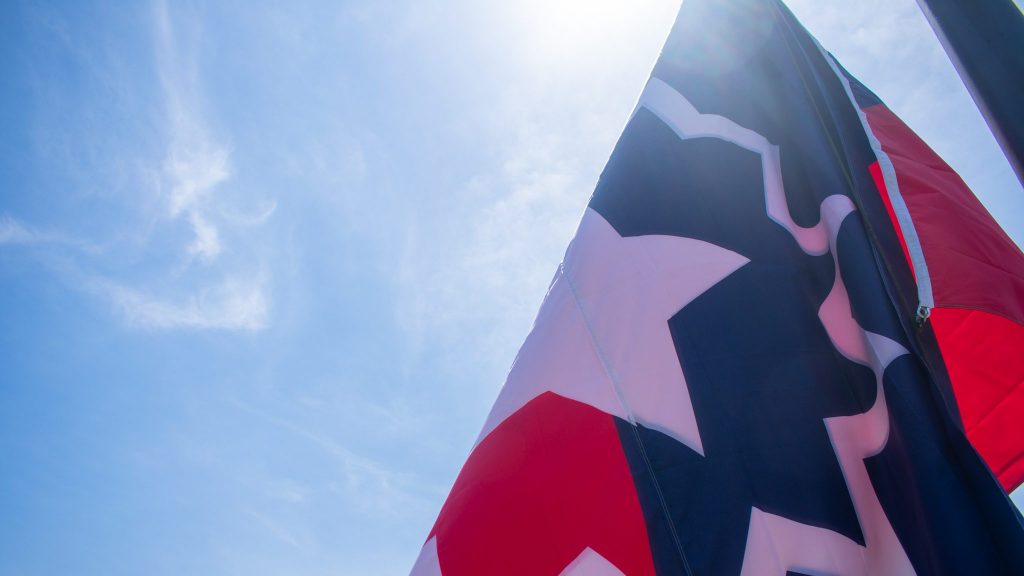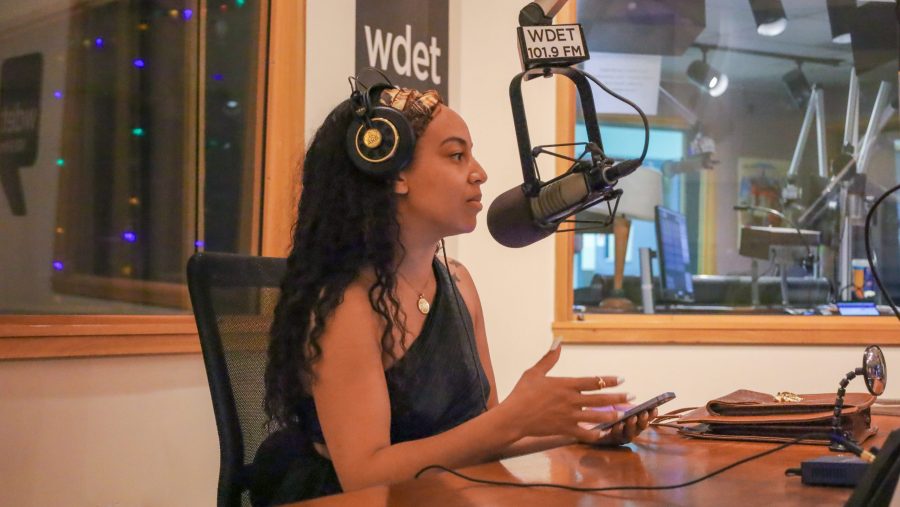The Metro: Wayne State genealogy workshop offers tips for tracing lineage of Black Americans
Bre'Anna Tinsley, Nadia Ziyad, The Metro June 24, 2025Subscribe to The Metro on Apple Podcasts, Spotify, NPR.org or wherever you get your podcasts.

The Juneteenth flag gets raised during the Wayne State University Juneteenth kickoff event, on Jun. 13, at Wayne State University, in Detroit, Mich.
Wayne State University is offering a genealogy workshop focused on the lineage of enslaved Black Americans as part of its 2025 Juneteenth programming.
At the interactive workshop, “Building Forward with Wisdom,” participants will learn practical genealogy strategies, like how to trace one’s ancestry through digital tools and historical records, under the guidance of professional genealogist, historian and researcher Dr. Carolyn Carter.
Carter says when beginning the search into family history, its important to start with what’s known.
“In genealogy, we do something called tracing from the known to the unknown,” Carter said. “You want to start with your story, or the people who are there with you.”
WDET’s Bre’Anna Tinsley spoke with Carter ahead of the workshop to discuss what attendees can expect and share tips for tracing one’s ancestry.
Carter says collecting oral histories will be the most valuable resources, and often the only resources that people may have. Once the story reaches slavery, researchers may find it more difficult to find information as enslavers did not keep detailed records of slaves.
“Because enslaved people were property, they had no rights. They were listed on the Census just by tick mark in male or female. So those stories, those histories have been lost,” Carter said.
Carter said researching the enslavers themselves can be just as crucial as researching one’s ancestors. She suggested checking wills and deeds of enslavers, as they would often leave slaves to family members after death. Some enslavers would sympathize with their slaves and leave property to them in their death, or emancipate them in their wills, she added.
According to Carter, there are many road bumps along the way when researching ancestors. One main reason she points out is that African Americans, even those who were free, were afraid of the government. They often would not give accurate information during Census counts to protect themselves and their loved ones.
“They put nicknames, they put erroneous occupations. And if you were living or visiting a relative the day that the Census takers came, you were recorded as living in that home,” she said.
Carter says it wasn’t until after emancipation that the U.S. government realized they were getting inaccurate information.
“So genealogy is detective work,” Carter said. “You’ve got to figure out some things. You got to listen and learn and and understand history and understand your family, where they came from, how they migrated, when they migrated, who they are.”
Carter also advises researchers to think outside the box when looking for names. Some people may have names spelled incorrectly, because most black people were illiterate and would spell things by how they sound. They would change their names to distance themselves from the enslaver, such as adding the surname Freeman or adding an “e” to the end of names to signify their emancipation.
Use the media player above to hear the full conversation.
Listen to The Metro weekdays from 10 a.m. to noon ET on 101.9 FM and streaming on-demand.
Trusted, accurate, up-to-date.
WDET strives to make our journalism accessible to everyone. As a public media institution, we maintain our journalistic integrity through independent support from readers like you. If you value WDET as your source of news, music and conversation, please make a gift today.Donate today »

